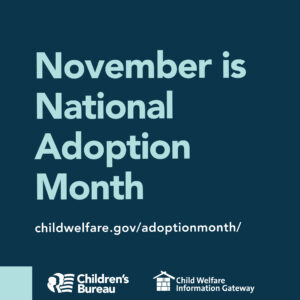One’s upbringing has a lasting impact on one’s life. What we experience growing up can set us up for success or challenges down the road. There is no formula for predicting how a person’s life will pan out in the long run. However, there are life events like adoption that can predispose people to have issues such as addiction later in life.
Many people who have traumatic childhoods are unable to develop healthy coping mechanisms. Those who are subject to abuse, emotional or physical, are often ill-equipped to live life on life’s terms. Many adopted individuals struggle with anxiety and depression; some will turn to drugs and alcohol to cope with their symptoms.
Trauma is a significant predictor for who will turn to drugs and alcohol to cope. For instance, those living with post-traumatic stress disorder (PTSD) are at a higher risk of using drugs and alcohol to deal with symptoms. PTSD is not always the result of combat or physical abuse; it can develop from an insecure living environment.
In The Primal Wound, Nancy Verrier writes:
Adoptees trauma occurred right after birth, so there is no ‘before trauma’ self. They suffered a loss that they can’t consciously remember and which no one else is acknowledging, but which has a tremendous impact on their sense of self, emotional response, and worldview. Even in adulthood, adoptees may unconsciously perceive the world as ‘unsafe and unfamiliar,’ remaining in a near-perpetual state of heightened anxiety and constant vigilance.”
Adopted individuals may struggle with lingering attachments, which are often the most significant source of anxiety. Many will have difficulty with never knowing their birth parents. Feeling unwanted can take a toll as well.
National Adoption Month
November is National Adoption Month, an initiative to increase awareness of the need for permanent families for children and youth in the U.S. foster care system. This year’s National Adoption Month theme is “Engage Youth: Listen and Learn.” The The Children’s Bureau writes:
It is well known that teenagers are less likely to be adopted, often because of their age, and are much more likely to age out of foster care without strong or stable family support. Securing lifelong connections for teens in foster care, both legally and emotionally, is a critical component in determining their future achievement, health, and well-being.
While it would be nice to think of adoption as being a seamless transition, it’s often a long, drawn-out process that can significantly affect the course of one’s life. Those who are wards of the state are removed from unsafe homes or experience trauma while in foster care. Some adopted children have biological parents who struggle with drugs and alcohol. At this time, we would like to bring people’s attention to the prevalence of addiction among people who were adopted.
The combination of a genetic predisposition for addiction and lingering attachment issues can cause complications. According to researchers at the University of Minnesota Medical School, adopted individuals are at an increased risk of mental illness and substance use disorder (SUD).
If you were adopted and are struggling with mental health or behavioral health disorder(s), you are not alone. Data from the National Epidemiologic Survey on Alcohol and Related Conditions indicates that adoptees are 1.87 times more likely to face substance use disorder problems. The authors write:
Adoptees had higher odds for lifetime SUDs than non-adoptees in this study using NESARC data. Despite the advantages of adoptees’ higher educational levels probably due to being raised by higher educated, higher-income adopting parents, adoptees are still at higher risk to lifetime SUD. Awareness of adopted persons and their adoptive parents to this risk may help in primary prevention (never using substances; having conservative rules about doses and frequency of use) and in secondary prevention (being alert to early signs and symptoms; timely intervention to reduce damage and increase the chance of recovery). The findings can also be useful for clinicians and policymakers to provide education, prevention, and support for adoptees and their families.”
Additional Reading on Adoption, Addiction, and Mental Illness
At PACE Recovery Center, we specialize in the treatment of adoptees that struggle with mental illness and substance use disorders. We have written about the subject on numerous occasions and we invite you to learn more about the subject:
- Addiction and Adoption Link is Complicated
- Addiction Linked to Trauma: Finding Recovery
- Mental Health, Adoption, and Nature v. Nurture
- Adoption Trauma, Mental Illness, and Addiction
- Adoption-specific Treatment Program for Mental Illness
Specialists in Adoption-Related Addiction Treatment
Today, please contact us to learn more about our mental and behavioral health specialized services for those who were adopted. Call the PACE Recovery Center team at 800-526-1851 to learn how we can help you or a loved one heal and lead a healthy life in recovery.



